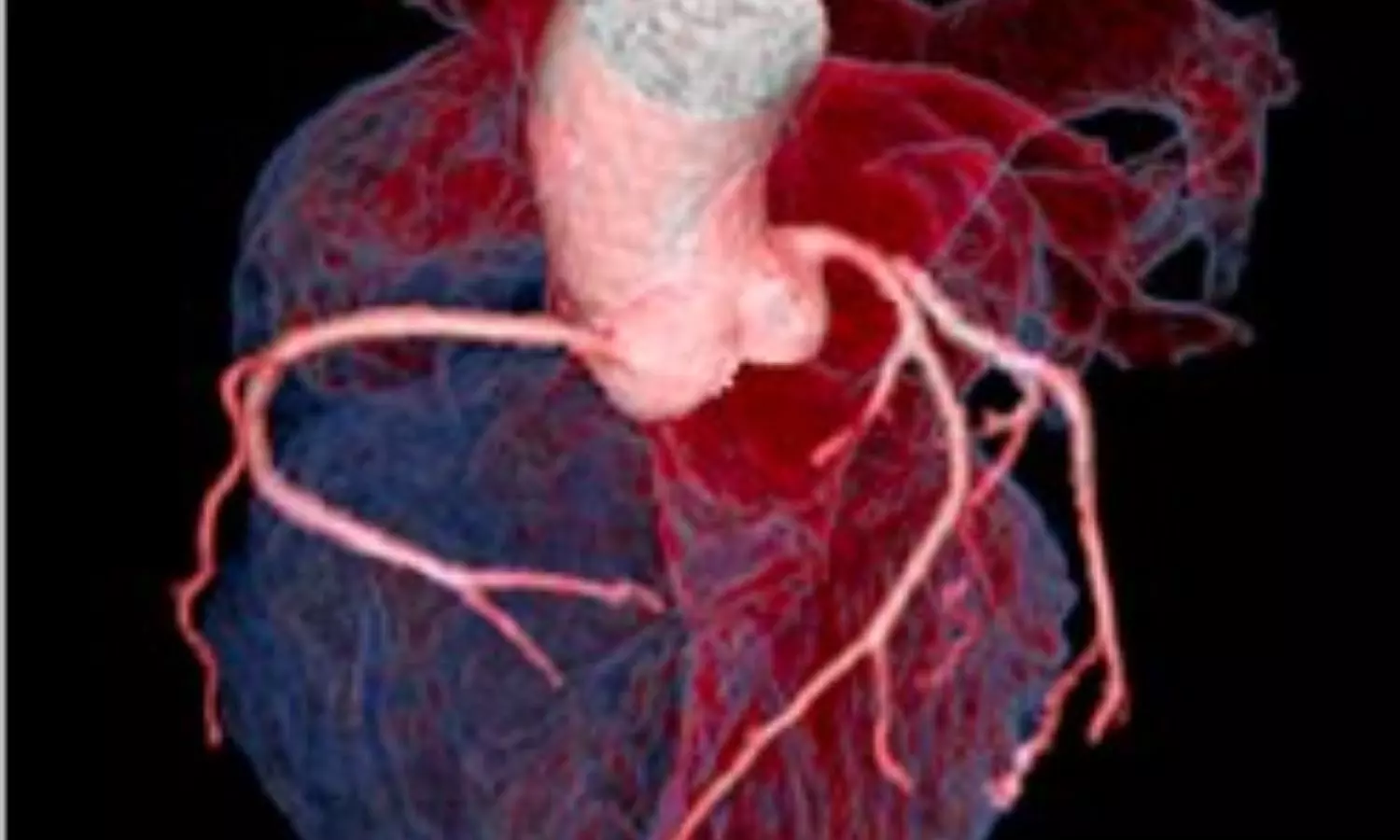TyG-BMI Index linearly associated with degree of complex coronary artery disease in female ACS patients: Study

A recent study, conducted at the Affiliated Hospital of Zunyi Medical University, sheds light on the relationship between the Triglyceride-Glucose-Body Mass Index (TyG-BMI) index and the extent of coronary artery disease in patients with acute coronary syndrome (ACS). The findings offer valuable insights into potential risk markers for cardiovascular complications. This study was published in the journal BMC Cardiovascular Diabetology by Xueyuan Yang and colleagues.
The study included 2,317 ACS patients who underwent percutaneous coronary intervention. The key findings of the study were:
Association with Coronary Artery Disease:
-
TyG-BMI index was significantly associated with mid/high SYNTAX score in ACS patients.
-
Odds Ratio (OR): 1.0041; 95% Confidence Interval (CI): 1.0000-1.0079; p = 0.0310.
Subgroup Analyses (Female ACS Patients):
-
TyG-BMI index identified as an independent risk factor for mid/high SYNTAX score.
-
OR: 1.0100; 95% CI: 1.0000-1.0200; p = 0.0050.
-
Risk 2.49 times higher in the highest TyG-BMI index tertile (T3).
-
OR: 2.4900; 95% CI: 1.2200-5.0600; p = 0.0120.
Linear Association in Women:
-
Restricted cubic spline analysis revealed a linear correlation between TyG-BMI index and complex coronary artery disease (SYNTAX score > 22) in female ACS patients.
Predictive Power in Female ACS Patients:
-
Inclusion of the TyG-BMI index did not significantly improve the predictive power of the underlying risk model.
-
Net Reclassification Improvement: 0.0867 [-0.0256-0.1989], p = 0.1301.
-
Integrated Discrimination Improvement: 0.0183 [0.0038-0.0329], p = 0.0135.
The study concludes that the TyG-BMI index is linearly associated with the severity of complex coronary artery disease in female ACS patients. However, despite its correlation, the inclusion of TyG-BMI did not significantly enhance the predictive power of the existing risk model for these patients. These findings underscore the complexity of risk assessment in cardiovascular diseases and highlight the need for comprehensive risk evaluation strategies.
Reference:
Yang, X., Li, K., Wen, J., Yang, C., Li, Y., Xu, G., & Ma, Y. Association of the triglyceride glucose-body mass index with the extent of coronary artery disease in patients with acute coronary syndromes. Cardiovascular Diabetology,2024;23(1). https://doi.org/10.1186/s12933-024-02124-2
from Medical News, Health News Latest, Medical News Today - Medical Dialogues | https://ift.tt/8E7YuZ4
Comments
Post a Comment